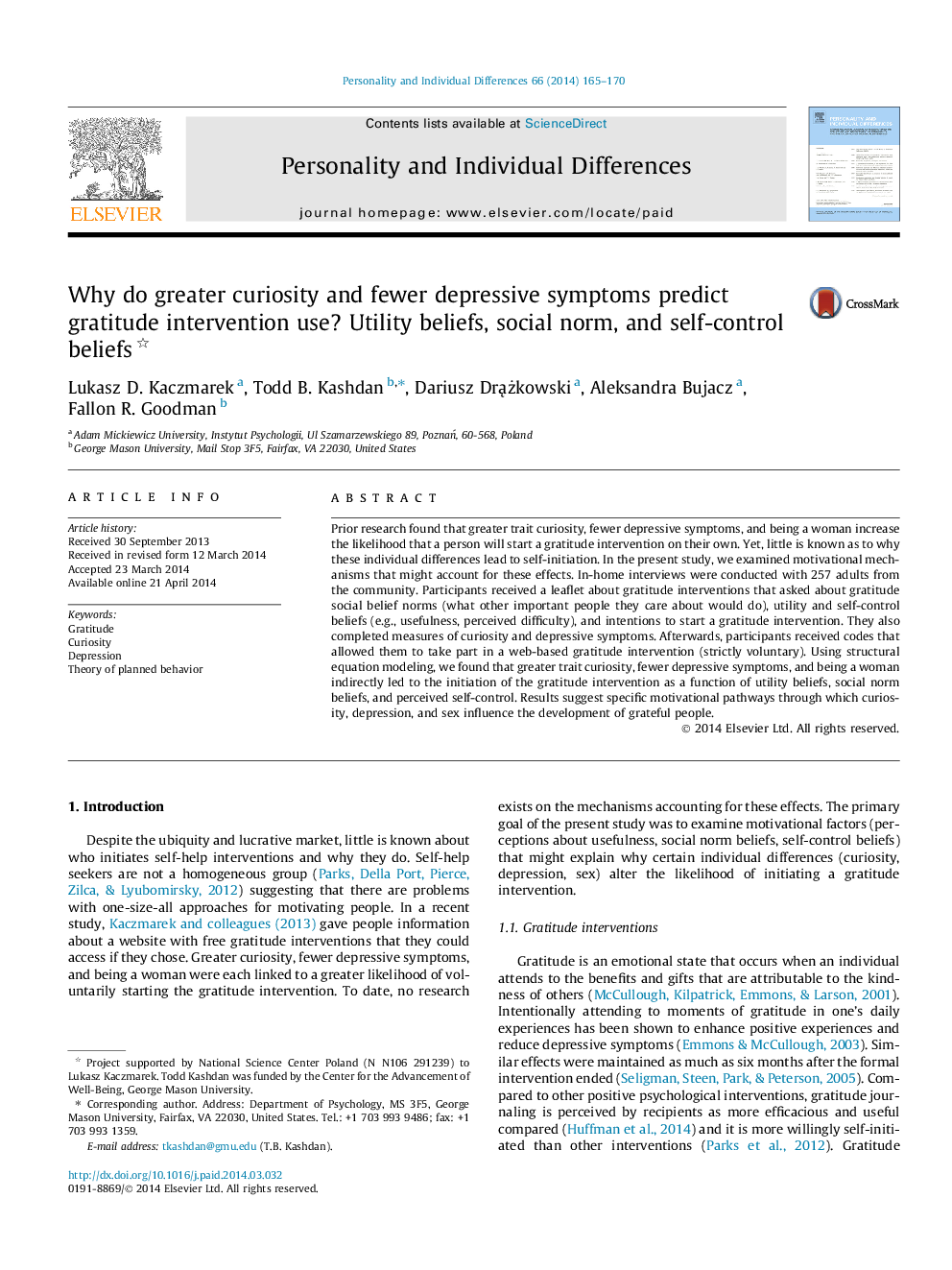| کد مقاله | کد نشریه | سال انتشار | مقاله انگلیسی | نسخه تمام متن |
|---|---|---|---|---|
| 890491 | 1472052 | 2014 | 6 صفحه PDF | دانلود رایگان |
• Explored what leads to self-initiated gratitude interventions.
• Greater dispositional curiosity and less depression increased self-initiation.
• Beliefs from the theory of planned behavior mediated dispositional influences.
• Women were more likely than men to initiate and complete the intervention.
Prior research found that greater trait curiosity, fewer depressive symptoms, and being a woman increase the likelihood that a person will start a gratitude intervention on their own. Yet, little is known as to why these individual differences lead to self-initiation. In the present study, we examined motivational mechanisms that might account for these effects. In-home interviews were conducted with 257 adults from the community. Participants received a leaflet about gratitude interventions that asked about gratitude social belief norms (what other important people they care about would do), utility and self-control beliefs (e.g., usefulness, perceived difficulty), and intentions to start a gratitude intervention. They also completed measures of curiosity and depressive symptoms. Afterwards, participants received codes that allowed them to take part in a web-based gratitude intervention (strictly voluntary). Using structural equation modeling, we found that greater trait curiosity, fewer depressive symptoms, and being a woman indirectly led to the initiation of the gratitude intervention as a function of utility beliefs, social norm beliefs, and perceived self-control. Results suggest specific motivational pathways through which curiosity, depression, and sex influence the development of grateful people.
Journal: Personality and Individual Differences - Volume 66, August 2014, Pages 165–170
